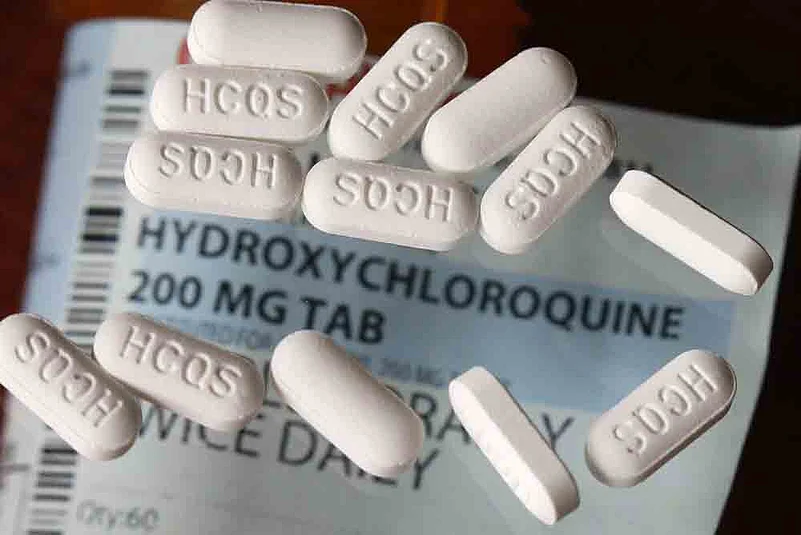Anti-malaria drug hydroxychloroquine is back in the news after US President Donald Trump on Tuesday hinted at retaliation if India does not export the drug that is believed to be helpful in treating the Coronavirus.
The US President has been touting hydroxychloroquine's potential and terming it a gamechanger. But does this anti-malaria drug have the potential to treat the disease? Could it be a possible miracle that can pull humanity out of the pandemic? That remains to be seen.
What is hydroxychloroquine?
Hydroxychloroquine is used to treat malaria. The drug was invented during World War II. It is also prescribed for rheumatoid arthritis. According to the Johns Hopkins University Lupus Center, the anti-malarial medication has been shown to improve symptoms such as muscle and joint pain, skin rashes, inflammation of the heart and lung linings, fatigue, and fever. Hydroxychloroquine is sold under the brand name Plaquenil and is available as generics.
Is it safe to use?
The Indian Council for Medical Research Director General Balrama Bhargava has recommended the use of hydroxychloroquine for treating healthcare workers tackling the suspected or confirmed coronavirus cases and also the asymptomatic household contacts of the lab-confirmed cases. The treatment protocol recommended by the National Task Force has been approved by the Drug Controller General of India (DGCI) for restricted use in emergency situations.
Another scientist at the ICMR said: "The empiric use of hydroxychloroquine for prophylaxis of SARS-Cov-2 infection is recommended only for asymptomatic healthcare workers involved in the care of suspected or confirmed cases of COVID-19 and asymptomatic household contacts of laboratory-confirmed cases." he said.
Side effects of the drug can be heart block, heart rhythm disturbance, dizziness, giddiness, nausea, vomiting and diarrhoea.
In March, a man died while his wife was left in a critical condition in Arizona after they took chloroquine phosphate, an additive used to clean fish tanks that is related to the composition of the anti-malaria drug hydroxychloroquine.
Can hydroxychloroquine be used to treat Coronavirus?
In France, 40 coronavirus patients were given hydroxychloroquine and more than half of them experienced the clearing of their airways within three to six days. The study suggested that the anti-malarial drug can slow infections from Sars-CoV-2 -- the virus behind Covid-19 -- by blocking it from entering cells in the body.
"But more recent, albeit small-scale, research from China has shown that patients who were treated with the drugs fought off coronavirus no more quickly than those who didn’t get it. Indeed, one patient given hydroxychloroquine severely worsened in condition while four patients on the medicine developed signs of liver damage and experienced diarrhea," the Guardian reported.
And it is important to note that a drug used with for treatment with subjecting it to a full and thorough clinical trial is, at the best, untested and may have severe drawback.s
According to the European Medicines Agency, hydroxychloroquine should not be taken by coronavirus patients except for clinical trials or emergency use programs.
















